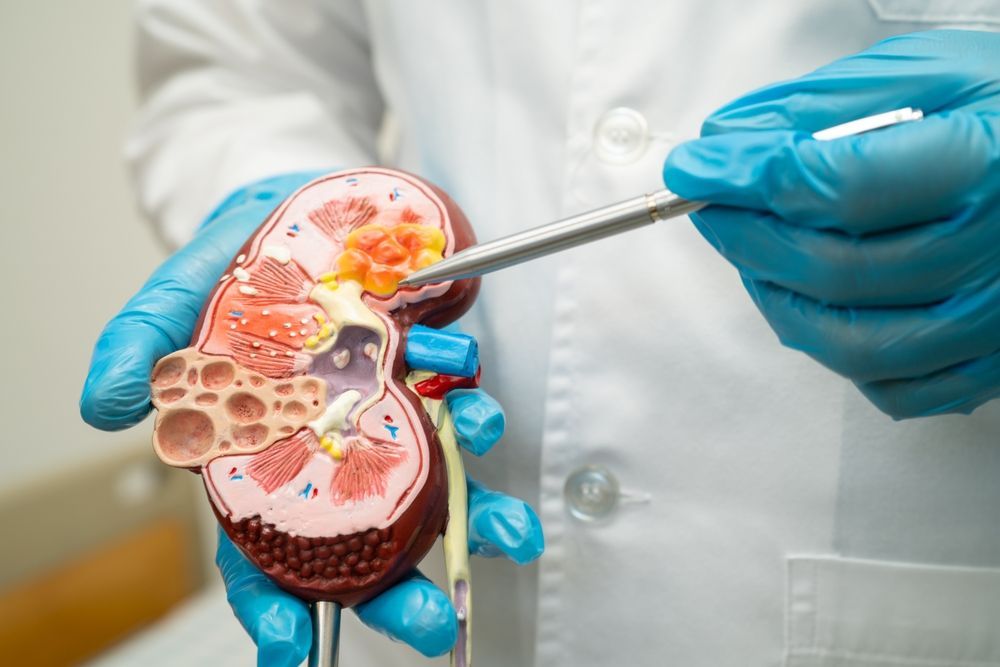Peritoneal Dialysis Treatment Coming Soon!
Written by: Vitality Dialysis

Chronic Kidney Disease (CKD) is a progressive condition that affects millions of people worldwide. Stage 3 CKD is a critical turning point where kidney function is moderately reduced (eGFR 30-59), meaning the kidneys are not filtering waste as effectively as they should. Unlike earlier stages, symptoms may become more noticeable, and complications can begin to develop. Understanding the risks, symptoms, and management strategies at this stage is crucial for slowing progression and maintaining overall health.
Understanding Stage 3 CKD
Stage 3 CKD is divided into two sub-stages:
- Stage 3A: eGFR between 45-59, indicating mild to moderate loss of kidney function.
- Stage 3B: eGFR between 30-44, showing more significant impairment.
At this stage, waste and toxins can start to accumulate in the blood, potentially leading to health complications. However, with the right medical care and lifestyle changes, many individuals can manage the condition and prevent further decline.
Symptoms and Early Indicators
Some individuals with Stage 3 CKD may not experience symptoms, while others may begin to notice changes, such as:
- Fatigue and decreased energy levels
- Swelling in the hands, feet, or face due to fluid retention
- Changes in urination patterns (foamy urine, darker color, or increased frequency)
- Back pain or discomfort in the kidney area
- High blood pressure, which can worsen kidney function
- Muscle cramps, particularly at night
Risk Factors and Causes
Several factors contribute to the development and progression of CKD. Addressing these risks early can help prevent further kidney damage.
Common Causes of Stage 3 CKD
- Diabetes: Elevated blood sugar levels can damage kidney filtration units over time.
- Hypertension (High Blood Pressure): Increased pressure on kidney blood vessels accelerates damage.
- Genetics: A family history of kidney disease raises the likelihood of progression.
- Autoimmune Disorders: Conditions like lupus can trigger kidney inflammation.
- Recurring Kidney Infections: Frequent infections may cause scarring and functional decline.
Lifestyle and Environmental Risk Factors
- Obesity: Being overweight heightens the risk of diabetes and hypertension.
- Smoking: Reduces oxygen flow to the kidneys, worsening damage.
- Diet High in Sodium and Processed Foods: Contributes to high blood pressure and fluid retention.
- Excessive Use of NSAIDs: Long-term use of pain relievers like ibuprofen may cause kidney stress.
Potential Complications
If left unmanaged, Stage 3 CKD can lead to additional health concerns, including:
- Increased risk of cardiovascular disease
- Bone mineral disorders due to imbalanced calcium and phosphorus levels
- Anemia, resulting in fatigue and weakness
- Higher risk of developing Stage 4 CKD and eventual kidney failure

Diagnostic Approaches
Early detection and consistent monitoring can help slow CKD progression. Common diagnostic methods include:
- Blood Tests: Measure creatinine levels to estimate eGFR and kidney function.
- Urine Tests: Identify proteinuria (protein in urine), a key marker of kidney stress.
- Blood Pressure Monitoring: High blood pressure management is essential in slowing kidney deterioration.
- Imaging Studies: Ultrasound or CT scans can assess kidney size and detect abnormalities.
Management and Prevention Strategies
Slowing CKD progression at this stage requires a combination of lifestyle changes and medical interventions.
Lifestyle Modifications
- Follow a Kidney-Friendly Diet: Limit sodium, phosphorus, and potassium intake while prioritizing lean protein and fresh produce.
- Exercise Regularly: Helps manage blood pressure, blood sugar, and weight.
- Stay Hydrated: Proper hydration supports kidney function and prevents further stress.
- Avoid Smoking and Excess Alcohol: Reducing toxins can alleviate kidney burden.
Medical Management
- Control Blood Pressure and Blood Sugar: Medication and dietary adjustments help maintain kidney stability.
- Monitor Kidney Function Regularly: Routine testing helps track progression and adjust treatments as needed.
- Manage Anemia and Bone Health: Supplements or medications may be required to prevent complications.
Patient Empowerment and Resources
Understanding Stage 3 CKD and implementing proactive health measures can make a significant difference in quality of life. Support networks, dietary counseling, and educational resources are valuable tools for staying informed and engaged in kidney care.
Home Dialysis Made Simple—Get in Touch with Vitality
If you have been diagnosed with Stage 3 CKD, now is the time to take action. Vitality Dialysis is here to help you navigate your kidney health with expert guidance, lifestyle recommendations, and
home dialysis options if needed in the future.
Contact us today to learn how we can support your journey toward better kidney health and improved well-being.
© Copyright 2024 | Vitality Dialysis Privacy Policy |
Website imagined and executed by RivalMind.
Contact






